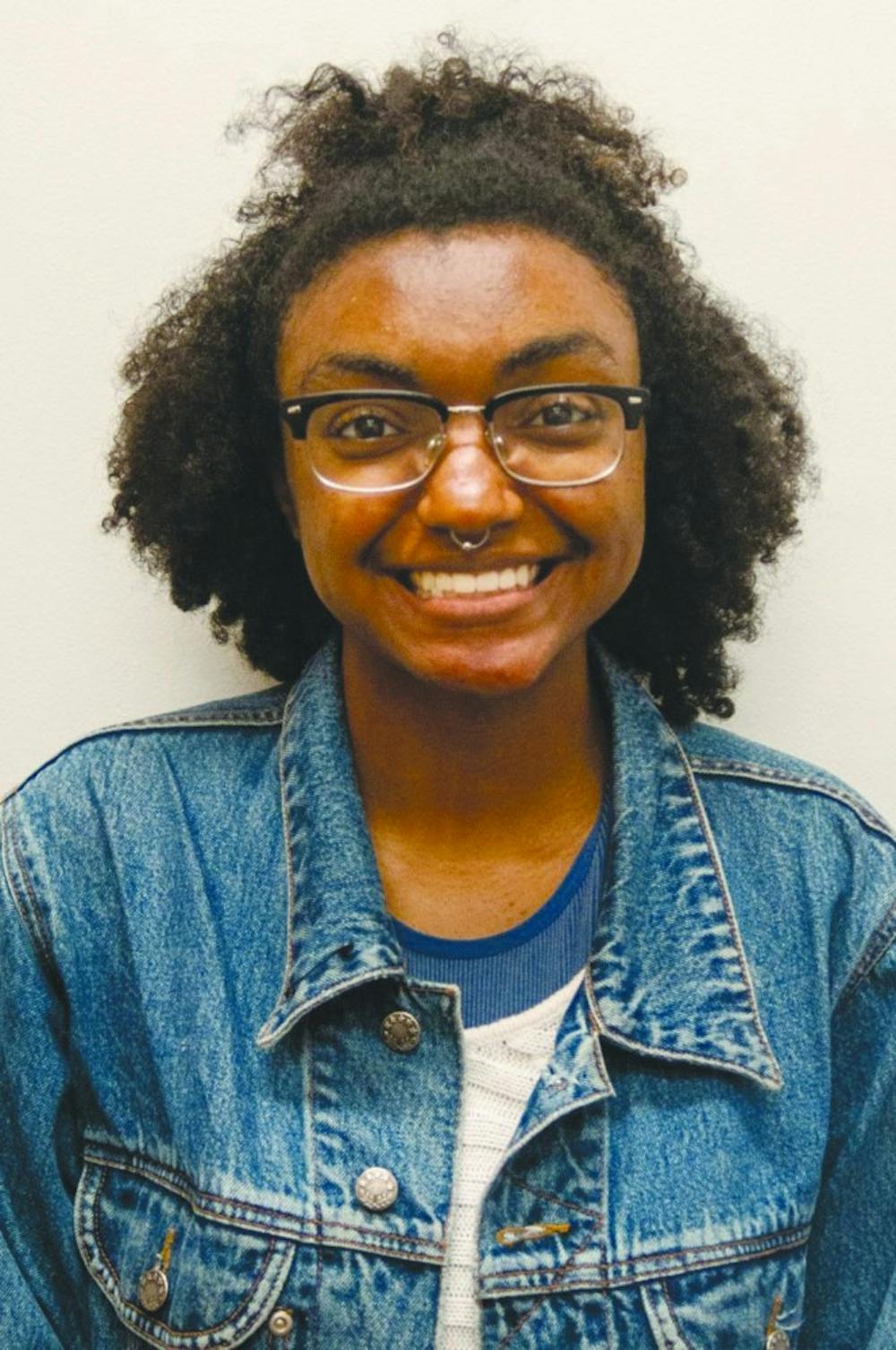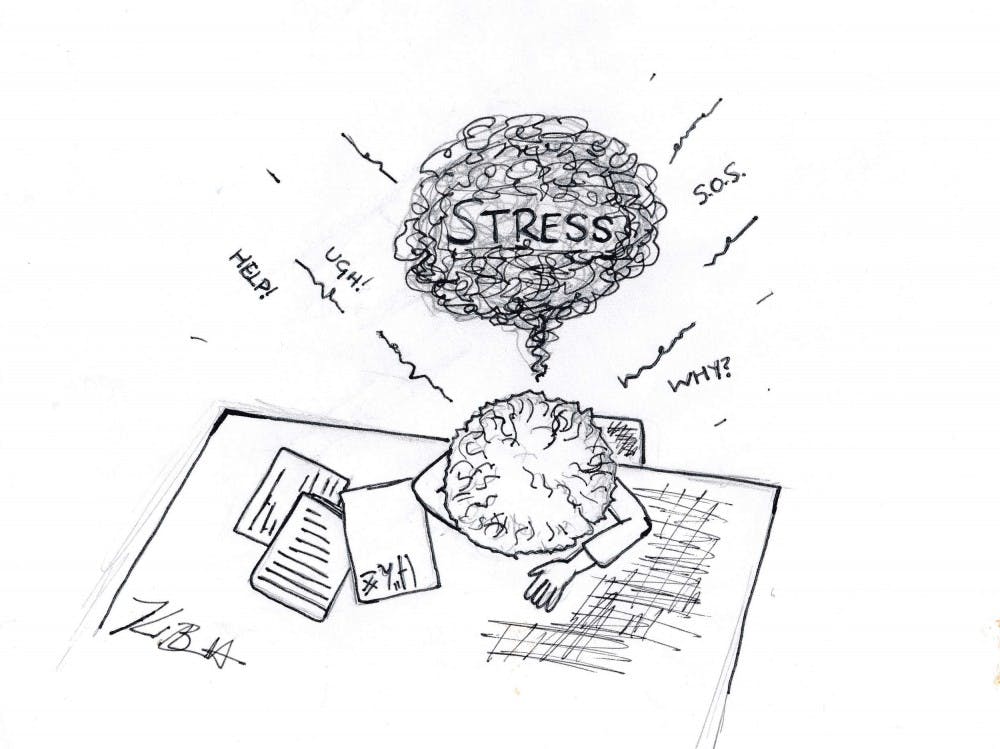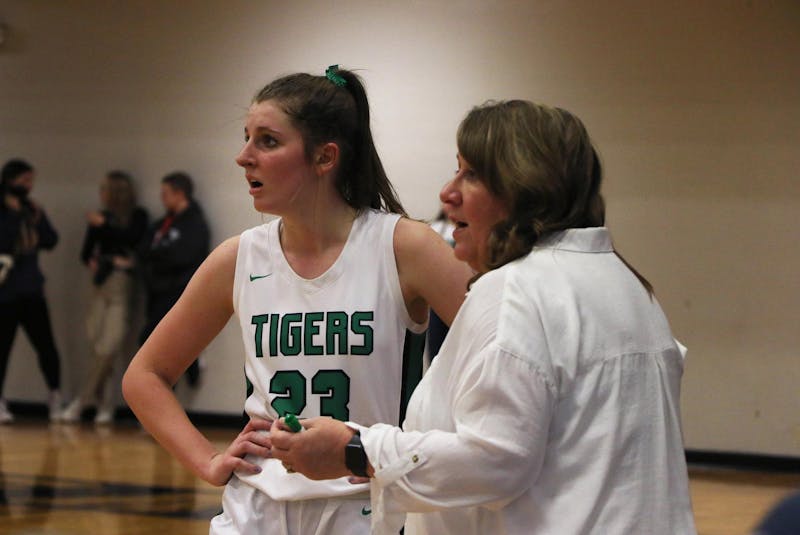
Kennedi Barnett is a sophomore journalism news major and writes "Kennedi’s Kaleidoscope" for The Daily News. Her views do not necessarily agree with those of the newspaper. Write to Kennedi at kpbarnett@bsu.edu.
Breathe in for four counts, hold for four counts and exhale for four counts.
Clench your toes and relax. Clench your teeth and relax. Clench your fists and relax.
Remember to stay still and breathe slowly. Close your eyes and picture a moment that makes you happy, a concert that changed your life or a person you love.
This helps me cope. This is how I get through the day in one piece. But it does not stop the panic attacks from happening.
Anxiety is a disability many people hear about but not a lot of people understand, therefore it is not often taken seriously. Just because it cannot be seen does not mean it should be ignored. Anxiety is a serious disability and should be seen as to equal other, more visible disabilities.
I should know. I was diagnosed with generalized anxiety disorder freshman year of high school.
I had known for years before being diagnosed that something was not right. Doing normal activities like talking, walking in front of the class and maintaining relationships started to feel like long division.
I remember trying to fall asleep in the sixth grade and crying because there were too many voices in my head. I could not focus on one topic; my grades were suffering and I was scared.
Should I wake up and study more? Do my friends like me? Did I make a mistake?
As the years have passed, I have learned to deal with some parts of panic attacks and social anxieties. But sometimes it is nearly impossible to be able to stop a panic attack from happening.
I recently went to the Office of Disability Services to make accommodations for my anxiety for the rest of my time at Ball State. I made these accommodations because I had a panic attack during class.
My glasses started to fog, and I felt my chest tighten. The familiar feeling of stress and panic washed over me. I truly could not breathe.
I left the class twice that day, only for a couple minutes each time. I drank some water, splashed some water on my face and told myself I would be fine after a couple minutes.
After explaining the situation to my professor, she told me having panic attack is not a good enough reason to leave class twice.
She told me I should have come to her and explained the situation. That somewhere in the middle of me gasping for breath and holding back tears, I should have dealt with the issues and let the class know what was happening.
I was humiliated.
It is wrong to tell someone their disability is not valid enough. It is wrong to make me feel like I should have a cure for something I cannot control.
The truth is, everyone deals with their anxiety differently and everyone's anxiety is unique to them. No one's disability should be viewed as a burden by anyone but themselves. If we are going to make things easier for people with disabilities, we have to make it easier for all disabilities.
Would you get upset with a student in a wheelchair if they needed a different desk? Would you tell a student with a learning disability they have to read faster? Would you shame a blind student for not being able to see the chalkboard?
I had to go through years of depression. I had to learn what to eat, so my stomach would not be upset when I have a panic attack. I had to take speech classes to get rid of my stutter.
Because of all this, I should not have to make accommodations for the class to feel more comfortable with my disability. As a professor, your job should be making accommodations for anyone with any type of disability to feel more comfortable in class. And as society, we should start listening to and respecting people with invisible disabilities, not just the physical ones.





The Daily News welcomes thoughtful discussion on all of our stories, but please keep comments civil and on-topic. Read our full guidelines here.